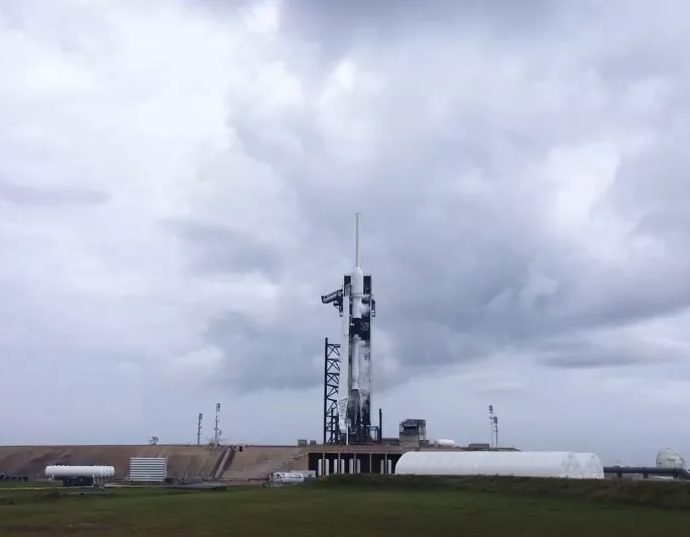
SpaceX postponed the launch of a new fleet of Starlink internet satellites today (Sept. 28) due to bad weather at the mission’s Florida launch site.
A SpaceX Falcon 9 rocket was scheduled to launch 60 Starlink satellites from Pad 39A of NASA’s Kennedy Space Center in Florida at 10:22 a.m. EDT (1422 GMT), but thick clouds over the launch site prevented the flight.
“Unfortunately, it looks like due to weather violations, we’re going to to have to scrub today,” Alex Seigel, a senior material planner with SpaceX, said in live commentary. “But again, the most important thing is reducing as much risk on the mission as possible, and with that comes waiting for a window of good weather.”
The launch delay sets up a traffic jam of sorts in Cape Canaveral, where two more rockets are scheduled to lift off on Tuesday (Sept. 29).
Up first is a United Launch Alliance (ULA) Delta IV Heavy rocket, which is set to launch the classified NROL-44 satellite for the U.S. National Reconnaissance Office at 12:02 a.m. EDT (0402 GMT) on Tuesday. That mission will lift off from Space Launch Complex 37 at the nearby Cape Canaveral Air Force Station.
SpaceX is next with the launch of a GPS III navigation satellite for the U.S. military. That mission will launch from Space Launch Complex 40 at Cape Canaveral Air Force Station at 9:55 p.m. EDT (0155 Sept. 30 GMT).
You can watch those launch live here and on the Space.com homepage, courtesy of ULA and SpaceX.
SpaceX’s Starlink mission will likely have to wait until after the NROL-44 and GPS satellite launches before its next launch try.
“We currently don’t have a backup launch scheduled yet,” Seigel said during SpaceX’s launch webcast.
Monday’s launch attempt was SpaceX’s second try to launch the Starlink mission, the company’s 13th internet satellite flight, this month. An attempt on Sept. 17 was scrubbed by bad weather not at the launch site, but at SpaceX’s offshore drone ship landing platform where the Falcon 9’s first stage will land.
The Falcon 9 rocket on this mission is making its third flight for SpaceX as part of the company’s reusability program to reduce spaceflight costs. The booster launched SpaceX’s first astronaut flight for NASA in May, as well as a communications satellite for the South Korean military.
SpaceX has launched more than 700 Starlink satellites into orbit to date as part of a megaconstellation project designed to offer global high-speed broadband internet coverage. The initial constellation is expected to include about 4,000 satellites, SpaceX CEO Elon Musk has said.





















